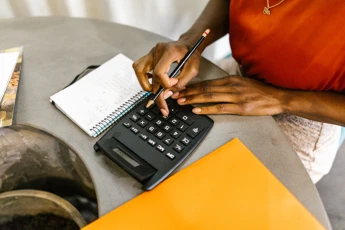Managing your personal finances is essential in achieving financial stability and can help to serve both your short and long-term goals. One of the key parts of this is budgeting, and there are all sorts of tools available to help.
1. Budgeting apps
Budgeting apps have become increasingly popular, purely because they’re so convenient. These apps will often connect straight to your bank account, helping you to track expenses, set financial goals, and receive real-time budgeting insights. They can also offer personalised tips and recommendations based on your specific spending patterns.
2. Spreadsheet tools
Those who prefer a more customisable approach to budgeting can opt for tools like Google Sheets and Excel. While they are more hands-on, they provide a lot of flexibility when it comes to creating personalised budget templates. Spreadsheets make it much easier to visualise your spending habits, and you can even design charts and graphs too.
3. The envelope system
The envelope system is a classic budgeting technique that many people still use today. It involves allocating cash to different envelopes, each of which represent your personal spending categories. This physical method works well for those who prefer to physically see their spending money, making it easier to avoid overspending. Examples of envelopes you could make include:
- Eating out
- Trips with the kids
- Fuel
- Groceries
4. Online banking tools
Most banks offer an online platform, which will likely come with various budgeting and tracking features. These tools make it easier to view your transactions as they happen, categorise your expenses, and set spending limits. You can also set them up to receive notifications when specific expenses are made.
No one-size-fits all
Budgeting is a personal thing, and each tool will cater to different personalities and financial management styles. Whatever method you choose (and you can pick more than one), make sure you’re using them to their full potential so you can keep on top of your spending. Remember, finding the right combination of tools and styles that properly align with your needs is the key to successful budgeting.
Check out our article about managing your finances for more information about saving, investing, and managing your money.
Important information
Your home may be repossessed if you do not keep up repayments on your mortgage.
There may be a fee for mortgage advice. The actual amount you pay will depend on your circumstances. The fee is up to 1% but a typical fee is 0.3% of the amount borrowed.




